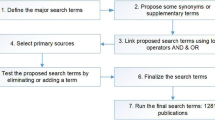Abstract
Gamification-based reward systems are a key part of the design of modern adaptive instructional systems and can have substantial impacts on learner choices and engagement. In this paper, we discuss our efforts to engineer the rewards system of Kupei AI, an adaptive instructional system used by elementary and middle school students in afterschool programs to study English and Mathematics. Kupei AI’s rewards system was iteratively engineered across four versions to improve student engagement and increase progress, involving changes to how many points were awarded for success in different activities. This paper discusses the design changes and their impacts, reviewing the impacts (both positive and negative) of each generation of re-design. The end result of the design was improved learning and more progress for students. We conclude with a discussion of the implications of these findings for the design of gamification for adaptive instructional systems.
Access this chapter
Tax calculation will be finalised at checkout
Purchases are for personal use only
Similar content being viewed by others
References
Cen, H., Koedinger, K.R., Junker, B.: Is over practice necessary?-improving learning efficiency with the cognitive tutor through educational data mining. In: Proceedings of the International Conference on Artificial Intelligence and Education, pp. 551–558. IOS Press (2007)
Cook, T.D., Campbell, D.T.: Quasi-Experimentation: Design and Analysis Issues for Field Settings. Houghton Mifflin, Boston (1979)
Corbett, A.T., Anderson, J.R.: Knowledge tracing: modeling the acquisition of procedural knowledge. User Model. User-Adapt. Interact. 4(4), 253–278 (1995)
Deci, E.L., Koestner, R., Ryan, R.M.: A meta-analytic review of experiments examining the effects of extrinsic rewards on intrinsic motivation. Psychol. Bull. 125, 627–668 (1999)
Dede, C., Richards, J., Saxberg, B. (eds.): Learning Engineering for Online Education: Theoretical Contexts and Design-Based Examples. Routledge (2018)
Dicheva, D., Dichev, C., Agre, G., Angelova, G.: Gamification in education: a systematic mapping study. J. Educ. Technol. Soc. 18(3), 75–88 (2015)
Koedinger, K.R., Corbett, A.T., Perfetti, C.: The knowledge-learning-instruction framework: bridging the science-practice chasm to enhance robust student learning. Cogn. Sci. 36(5), 757–798 (2012)
Koedinger, K.R., Sueker, E.L.F.: Monitored design of an effective learning environment for algebraic problem solving. Technical report CMUHCII-14-102. Carnegie Mellon University (2014)
Lepper, M.R., Greene, D.: The Hidden Costs of Reward: New Perspectives on the Psychology of Human Motivation. Psychology Press (2015)
Li, W., Grossman, T., Fitzmaurice, G.: GamiCAD: a gamified tutorial system for first time autocad users. In: Proceedings of the 25th Annual ACM Symposium on User Interface Software and Technology, pp. 103–112. Association for Computing Machinery (2012)
Long, Y., Aleven, V.: Students’ understanding of their student model. In: Biswas, G., Bull, Susan, Kay, J., Mitrovic, A. (eds.) AIED 2011. LNCS (LNAI), vol. 6738, pp. 179–186. Springer, Heidelberg (2011). https://doi.org/10.1007/978-3-642-21869-9_25
Long, Y., Aleven, V.: Gamification of joint student/system control over problem selection in a linear equation tutor. In: Trausan-Matu, S., Boyer, K.E., Crosby, M., Panourgia, K. (eds.) Intelligent Tutoring Systems. ITS 2014. Lecture Notes in Computer Science, vol. 8474, pp. 378–387. Springer, Cham (2014). https://doi.org/10.1007/978-3-319-07221-0_47
Morford, Z.H., Witts, B.N., Killingsworth, K.J., Alavosius, M.P.: Gamification: the intersection between behavior analysis and game design technologies. Behav. Anal. 37(1), 25–40 (2014)
Muñoz-Merino, P.J., Molina, M.F., Muñoz-Organero, M., Kloos, C.D.: An adaptive and innovative question-driven competition-based intelligent tutoring system for learning. Expert Syst. Appl. 39(8), 6932–6948 (2012)
Shortt, M., Tilak, S., Kuznetcova, I., Martens, B., Akinkuolie, B.: Gamification in mobile-assisted language learning: a systematic review of Duolingo literature from public release of 2012 to early 2020. Comput. Assist. Lang. Learn. 1–38 (2021)
Tahir, F., Mitrovic, A., Sotardi, V.: Investigating the effects of gamifying SQL-tutor. In: Proceedings of the International Conference on Computers in Education (2020)
Terrell Jr., G., Kennedy, W.A.: Discrimination learning and transposition in children as a function of the nature of the reward. J. Exp. Psychol. 53(4), 257 (1957)
Acknowledgements
We would like to thank the developers of the Kupei AI system and the students, teachers, and parents who used the system, for their participation in this research.
Author information
Authors and Affiliations
Corresponding author
Editor information
Editors and Affiliations
Rights and permissions
Copyright information
© 2022 The Author(s), under exclusive license to Springer Nature Switzerland AG
About this paper
Cite this paper
Wang, K., Ma, Z., Baker, R.S., Li, Y. (2022). Iterative Refinement of an AIS Rewards System. In: Sottilare, R.A., Schwarz, J. (eds) Adaptive Instructional Systems. HCII 2022. Lecture Notes in Computer Science, vol 13332. Springer, Cham. https://doi.org/10.1007/978-3-031-05887-5_9
Download citation
DOI: https://doi.org/10.1007/978-3-031-05887-5_9
Published:
Publisher Name: Springer, Cham
Print ISBN: 978-3-031-05886-8
Online ISBN: 978-3-031-05887-5
eBook Packages: Computer ScienceComputer Science (R0)




